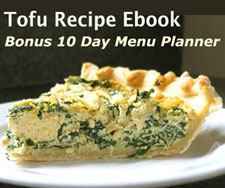
Mom Worries About Baby's Omega 3 Fatty Acids
Lacto-Ove vegetarian mom doesn't want to put self or baby at risk.
I am 31, on and off vegetarian for a few years, but have just again become lacto-ovo vegetarian as it feels right for me. I have been studying Yoga and I am now more conscious of non-harming. Prior to this study I was eating a very nutritious diet mainly veg with fish twice a week.
Which leads me to my main question: I understand that fish has the Omega 3 fatty acids that are needed for brain and eye development and is readily absorbed.
I know that through flaxseeds, especially ground, that my body can also convert these omega 3 fatty acids. But sometimes this doesn't happen as smoothly as when you eat fish. Is this right? I also don't drink alcohol and I don't eat marg or oil or other highly saturated fats which I have read can stop this process.
I am hoping to have a baby. Do I need to take anything else or should I be having fish?! I am not big on taking supplements. I have also started having some flaxseed oil (a teaspoon) on my salad twice a week. I feel that I am having all the right nutrients but I don't want to put myself or my baby at risk. Can you give me some advice?
I also have a 10 month baby, on formula, who is basically lacto-ovo vegetarian. I have been giving him some fish (fresh salmon) twice a week as he can not have nuts. Does he need to have fish? He is very active and alert and happy.
My husband is not vegetarian but is very supportive of me. He just wants me to be sure that I am not hurting myself or our baby. Look forward to hearing from you. - J. W.
Savvy Vegetarian Advice
Dear J. W.
There's no reason why your children can't be vegetarian, even without nuts. Children that age can't deal well with nuts anyway.
About fish, the issue isn't 'does my child need fish to be well nourished,' but 'should I raise my children as lacto-ovo vegetarian when my husband is not, or should I allow for some flexibility for more harmonious co-existance.'
I've found that children are very individual about food, and their tastes and desires should be considered within reason. These topics are well covered in 'Raising Vegetarian Children' by Joanne Stepaniak and Vesanto Melina. At Amazon there are 5 in depth customer reviews, and you can look inside the book at the table of contents and other sample pages.
Beyond nutritional considerations, I'd be concerned about mercury in fish, although it sounds like you are aware of that, since you're sticking to salmon. I found some articles on mercury in fish by Dr. Mercola. I'm not a big fan of his, but the article has a lot of good info.
No matter what the source, Omega 3 fatty acids are the same, chemically. They are just more plentiful in fish than in other food sources. You'll get all that you need from flaxseeds and flaxseed oil.
Note that flaxseeds have a very hard covering, and will pass right through undigested if they aren't ground or pressed into oil. The meal or oil goes rancid quickly, so should be refrigerated.
Dr. Michael Greger has an article about plant based sources of Omega 3 fatty acids as an alternative to fish.
I'm glad you're planning another child, so the one you have won't be an only, but you seem in a bit of a rush. Traditional wisdom holds that it's better to give your body a chance to recover fully from one birth before going on to the next if you can. Ayurveda says that it takes three years for a woman's body to fully recover.
I recommend another book for you, 'The Childbearing Years' by Susun Weed There's some good help in there for breastfeeding, and milk supply, etc.
I've given you a lot of reading material, including the Vegetarian Nutrition Report, which is really a general guide. I'm confident you'll take it all in and come up with the right answers. The only thing I'd add, and forgive me if I'm wrong - I have the impression that you could benefit from relaxing and enjoying a bit more about food.
The human body is flexible and resourceful, and if you're eating a wide variety of wholesome food that you and your family like, most likely you'll be fine.
My point of view is that while it's important to eat healthy, enjoying your food is one of the major requirements for good nutrition.
Judith Kingsbury, Savvy Vegetarian






